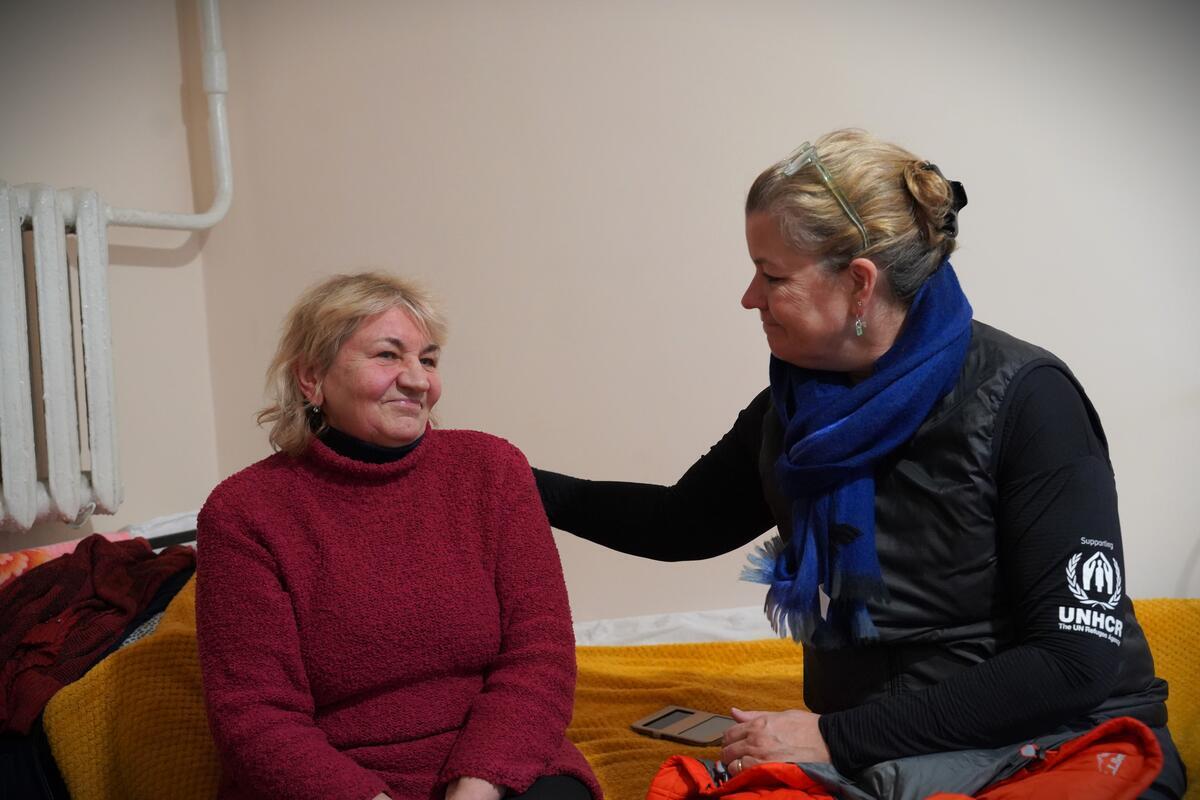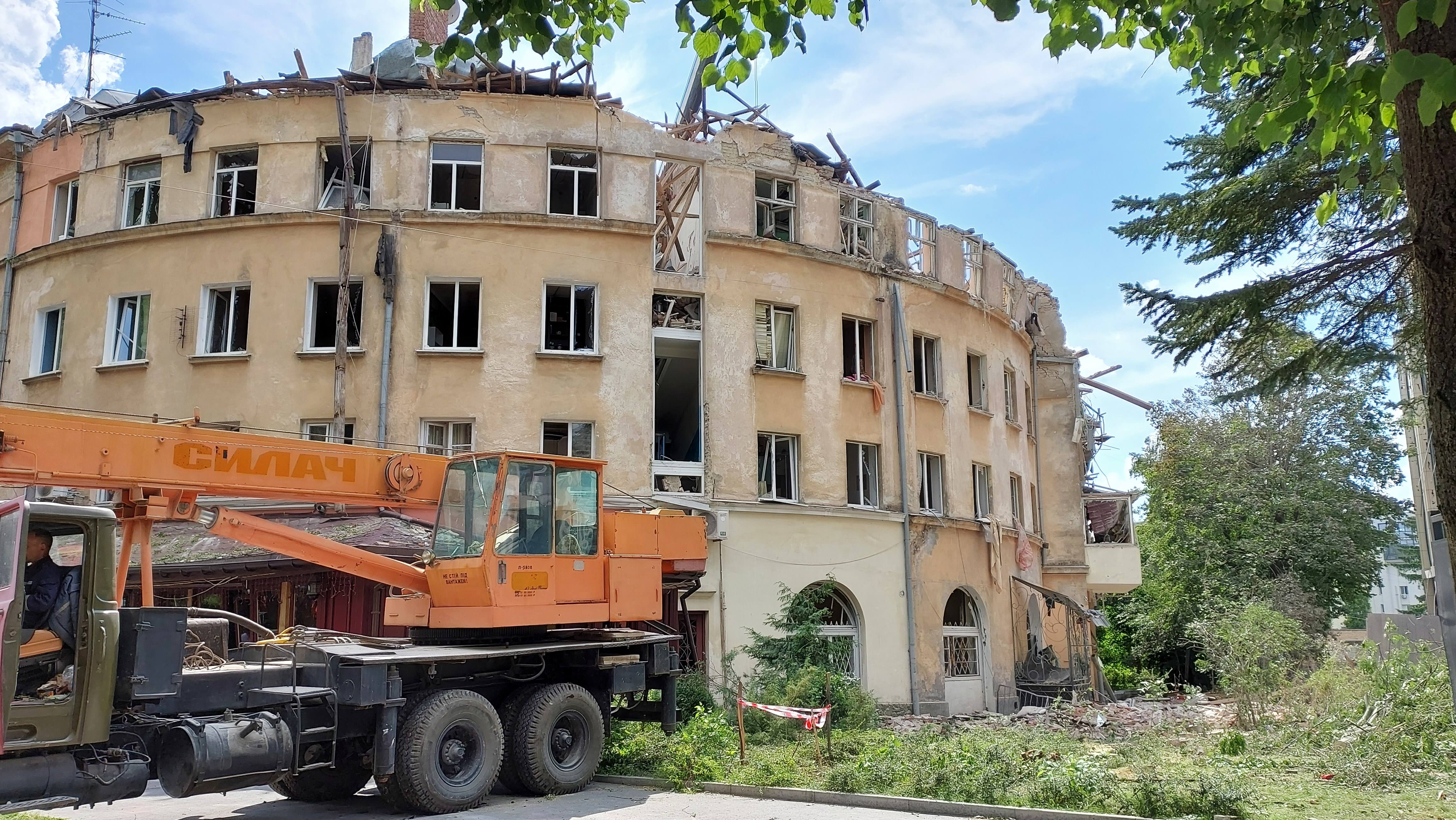UNHCR works with partners, authorities ahead of Ingush camp closure
UNHCR works with partners, authorities ahead of Ingush camp closure

ALINA CAMP, Ingushetia, Dec 5 (UNHCR) - Hundreds of displaced Chechens set to move out of Ingushetia's Alina camp are opting for either relocation or return in a process closely monitored by the UN refugee agency.
The Federal Migration Service of the Russian federation recently informed UNHCR of its plans to close Alina camp, also known as Camp A. The more than 800 Chechens hosted there have been given a choice between moving to another camp (Satsita camp, or Camp C) or other temporary settlements, and returning to Chechnya.
So far, 31 families have already moved out of Alina camp, mostly to temporary settlements in Ingushetia. Of those who remain, 103 families have expressed a wish to relocate, 72 families prefer to go home, while 27 families have yet to decide, according to reports by UNHCR field staff and monitors from the agency's implementing partner Vesta.
"UNHCR is closely following the process of closing the camp and is maintaining a daily presence at Camp A to reassure the displaced people and ensure that their rights are respected," said the agency's spokesman Kris Janowski at a news briefing in Geneva Friday.
The refugee agency has asked both the local authorities and the Federal Migration Service to maintain the gas, water and electricity supplies to Alina camp until all the displaced people have been relocated or repatriated. UNHCR is also monitoring the voluntariness of the process and working with its partners to prepare alternative shelter for those who choose to stay in Ingushetia.
At the Satsita site, UNHCR - with help from the Ingush migration authorities and the displaced people themselves - is preparing the site and building tents that are properly spaced. Partner agencies are assisting with the gas, water and electricity connections with fire and sanitary standards in mind.
Other NGO partners have recently rehabilitated rooms in temporary settlements for alternative shelter.
The migration department is authorising applications to relocate and sharing them with UNHCR in order to ensure that the displaced people are properly registered at their new location in Ingushetia.
To monitor the situation of voluntary returnees in Chechnya, UNHCR staff recently travelled to the capital, Grozny, where they found conditions in two temporary accommodation centres generally satisfactory. The gas and electricity supplies were regular and the heating functioning properly except in one building, where it was under repair. Water was supplied several times a day. Hygiene inside the centres was good, but garbage collection outside needed improvement.
"The major concerns of the Chechens were no longer the conditions in the accommodation centres but rather compensation for their destroyed houses and property and education facilities for their children," noted Janowski.
The UNHCR team also visited a returnee family that has benefited from a pilot project to provide prefabricated "box tents" as temporary shelter for voluntary returnees while they rebuild their private housing.









